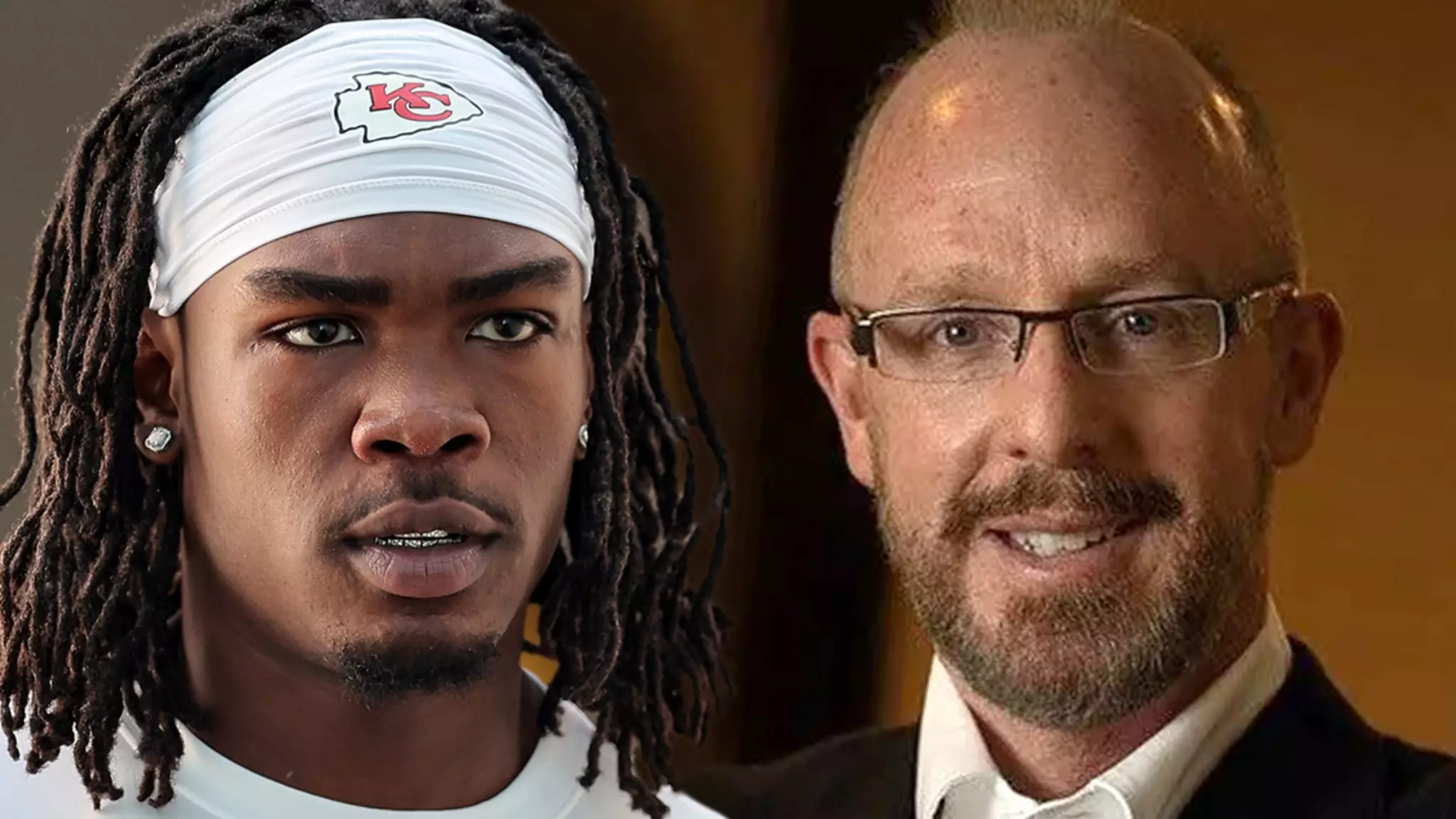Rashee Rice’s impending presence on the Kansas City Chiefs roster amid ongoing legal and ethical turmoil raises profound questions about integrity, accountability, and professional sports’ standards. While the NFL often emphasizes discipline and character, Rice’s case exemplifies a troubling disconnect between talent and responsibility. The question is no longer merely about his ability to perform on the field but whether an athlete with serious legal allegations and questionable decision-making deserves the platform of professional football.
Rice’s projected early involvement in games conflicts sharply with the details emerging from legal proceedings. Accusations of reckless driving, fleeing from an accident scene, and plea deals involving serious felonies cast a shadow over his readiness to represent a franchise that prides itself on excellence and discipline. To suggest that a player involved in such misconduct can simply return to the pitch as if nothing serious happened reflects a disturbing prioritization of entertainment over character. The league’s decision to delay disciplinary action demonstrates the internal conflict within the NFL—balancing legal considerations with the league’s image.
Legal Troubles and Ethical Dilemmas
Rice’s legal issues are not minor infractions; they involve high-speed racing, hit-and-run charges, and a civil lawsuit that alleges significant injuries to another victim. The victim’s attorney’s pointed critique underscores a fundamental injustice: a sense that the justice system and the NFL are falling short of providing sufficient accountability. The lawyer’s comments suggest that Rice’s claim of readiness to start playing while still wrestling with financial obligations and legal repercussions exposes a troubling paradox—the assumption that talent alone warrants a spotlight despite unresolved legal matters.
Furthermore, Rice’s attempt to dismiss the severity of his injuries—claiming to be physically ready to return—strikes many as naive or dismissive. It appears he is trying to balance a fragile reputation of being ‘ready’ with the reality that he might still owe victims and face legal consequences. The league’s apparent leniency could send a dangerous message: that personal misconduct can be overlooked if an athlete’s on-field contributions are deemed valuable enough.
Character and the Fabric of the NFL
The NFL has historically grappled with how to handle players embroiled in controversy. The recent suspension of Jordan Addison for legal issues contrasts sharply with Rice’s situation, which remains unresolved publicly as of now. The league’s decision to postpone disciplinary measures until late September suggests an internal debate—perhaps weighing public relations against the message it seeks to send about accountability.
For a franchise such as the Chiefs, which has built its reputation partly on winning character and discipline, the presence of a player embroiled in such serious allegations challenges foundational values. The team faces a dilemma: do they prioritize immediate performance and fan expectations or uphold standards of ethical responsibility? If Rice is permitted to play prematurely, it risks alienating fans, tarnishing the team’s integrity, and setting a questionable precedent for future conduct.
Public Perception and Future Implications
The broader implications extend beyond the immediate legal drama. The NFL’s handling of Rice’s case could influence public perception—whether viewers continue to see the league as a responsible steward of athlete conduct or as an entertainment enterprise that forgives misconduct if the money and wins are right. The case sparks a conversation about what standards the league should uphold and how it should treat players whose actions threaten public safety and civility.
Fans might be forgiving of mistakes if they are genuine acts of youthful indiscretion, but the severity and nature of Rice’s alleged crimes—speeding at over 100 MPH, fleeing the scene, and causing injuries—demand a higher level of accountability. If the NFL’s decision appears lenient or inconsistent, it risks undermining the moral authority that the league has long tried to project.
Rashee Rice’s situation exposes a fundamental tension at the heart of professional sports: the pursuit of greatness often conflicts with moral responsibility. The choices made in the coming weeks will not only shape Rice’s career but also serve as a litmus test for the NFL’s commitment to integrity. The league’s response will determine whether talent can truly outweigh accountability or whether the sport risks sacrificing its soul in the relentless pursuit of entertainment and victory.

